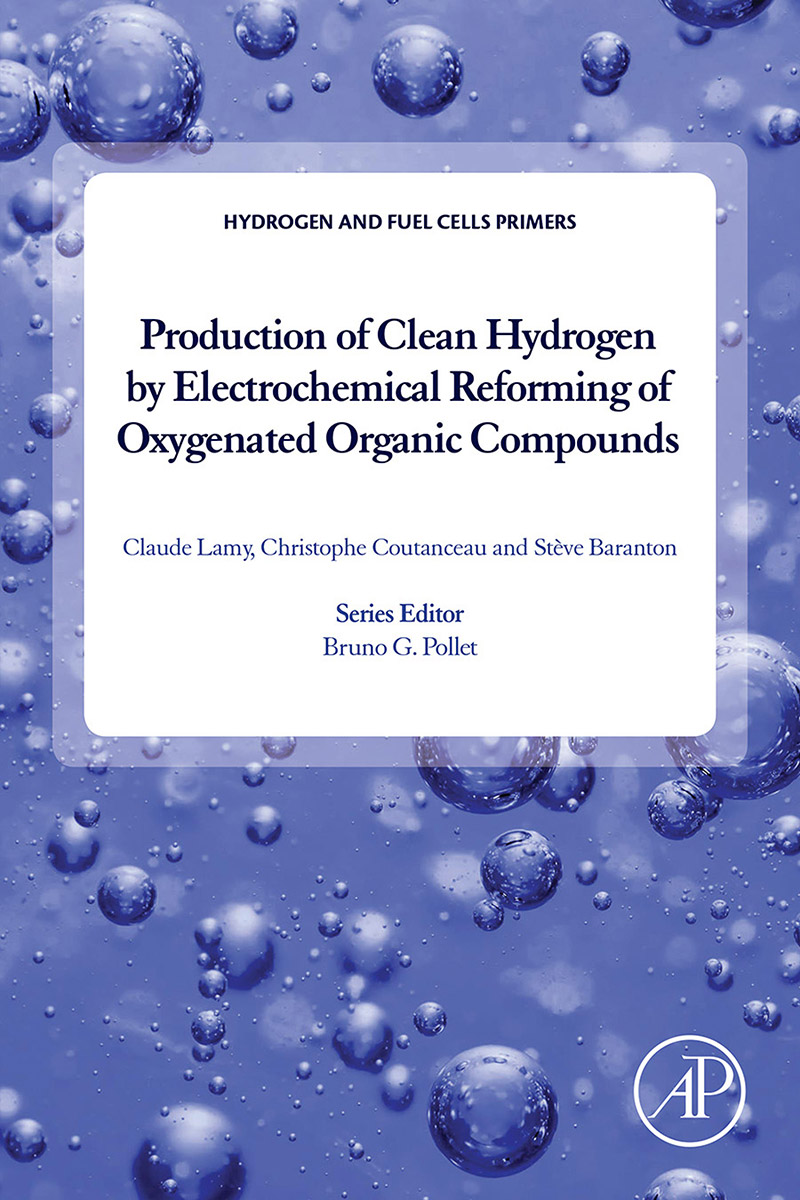Production of Clean Hydrogen by Electrochemical Reforming of Oxygenated Organic Compounds provides a comprehensive overview of the thermodynamics and experimental results that allows the decomposition process of organic compounds leading to hydrogen to be carried out at working cell voltages much lower than those encountered in water electrolysis. After presenting the principles of hydrogen production by electrochemical reforming, the authors review different methods of synthesis and characterization of the catalysts needed to activate the electro-oxidation reaction. Different electrolysis experiments are described to produce hydrogen in a Proton Exchange Membrane Electrolysis Cell (PEMEC), investigating the effect of the nature of the reactive molecules, of the nature and structure of the catalysts, of the working temperature on the electrolysis cell voltage and on the quantity of hydrogen produced. They also present results on the production of hydrogen by the electrocatalytic oxidation of compounds derived from biomass, such as glycerol and glucose in acidic and alkaline medium.
By exploring the link between organic oxidation/conversion to hydrogen production, Production of Clean Hydrogen by Electrochemical Reforming of Oxygenated Organic Compounds fills a gap a gap in the existing literature and provides researchers in the field with an authoritative and comprehensive reference they can use when developing new sustainable processes and systems for hydrogen production.
C. Lamy (IEM, Montpelliers), C. Coutanceau et S. Baranton (IC2MP).
